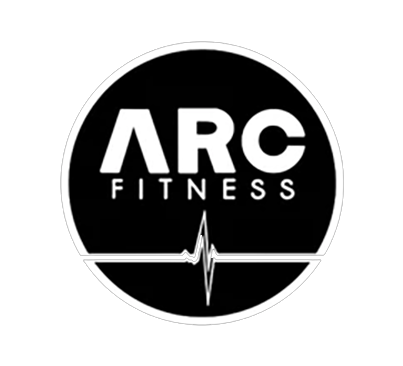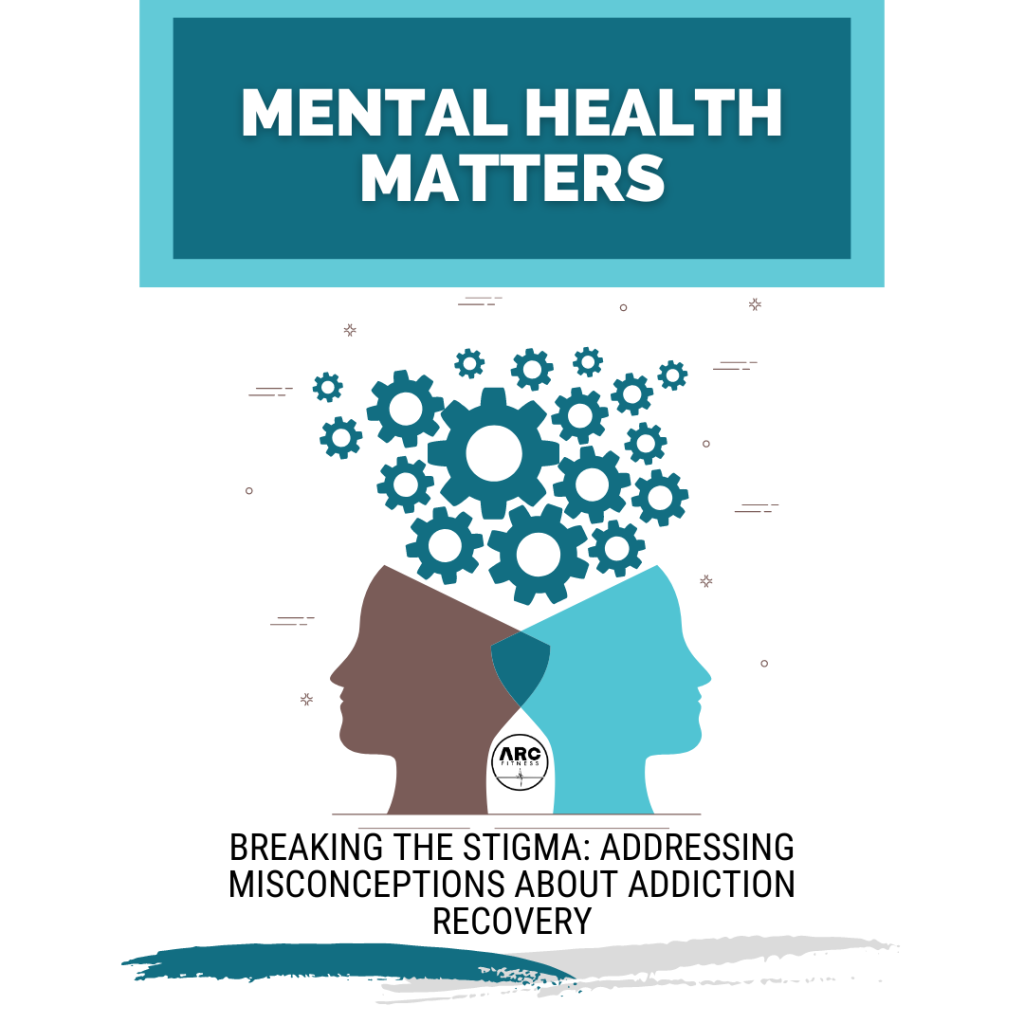No products in the basket.
Arc Fitness
Breaking the Stigma: Addressing Misconceptions about Addiction Recovery
Breaking the Stigma & Addressing Misconceptions about Addiction Recovery
Addiction recovery is a challenging and transformative journey that requires understanding, empathy, and support from society. Unfortunately, misconceptions and stigma surrounding addiction often hinder the recovery process and contribute to the isolation and shame experienced by individuals seeking help. It is crucial to debunk these misconceptions and promote a more compassionate perspective on addiction recovery. In this article, we will address common myths and shed light on the realities of addiction recovery, aiming to break the stigma and foster a more inclusive and supportive environment.
Introduction
Addiction is a complex and multifaceted issue that affects millions of people worldwide. It is essential to recognise that addiction is not a moral failing or a matter of weak willpower. Addiction is a chronic brain disorder characterised by compulsive drug or alcohol use despite harmful consequences. Understanding addiction as a medical condition is the first step towards dismantling the misconceptions and stigma surrounding it.
Understanding Addiction and Recovery
To address misconceptions about addiction recovery, it is crucial to first understand the nature of addiction. Addiction affects the brain’s reward system, leading to persistent cravings and compulsive behaviours. It is not simply a choice or a lack of willpower. Recovery from addiction involves a comprehensive and holistic approach that addresses both the physical and psychological aspects of the condition.
Common Misconceptions about Addiction Recovery
What does breaking the stigma mean? There are several prevailing misconceptions about addiction recovery that perpetuate stigma and hinder progress. By debunking these myths, we can create a more informed and supportive society. What are some examples of a stigma?
Myth: Addiction is a Choice
One common misconception is that addiction is a result of poor choices or moral failings. In reality, addiction is a complex interplay of genetic, environmental, and psychological factors. It can affect individuals from all walks of life, regardless of their character or willpower.
Myth: Once an Addict, Always an Addict
Another misconception is the belief that once someone becomes addicted, they are forever defined by their addiction. This is far from the truth. Recovery is possible, and many individuals have successfully overcome addiction and gone on to lead fulfilling and productive lives.
Myth: Only Weak-Willed Individuals Become Addicted
This misconception stigmatises individuals struggling with addiction by portraying them as weak or lacking in self-control. Addiction does not discriminate based on strength of character. It can affect anyone, regardless of their personal traits or achievements.
Myth: Addiction Recovery is a Quick Fix
Recovery from addiction is a lifelong process that requires dedication, commitment, and ongoing support. Contrary to popular belief, there is no quick fix or magic solution. Recovery takes time, effort, and perseverance.
Myth: Addiction Recovery is About Willpower Alone
Recovery from addiction is not solely reliant on willpower. It involves addressing underlying psychological issues, learning healthy coping mechanisms, and making positive lifestyle changes. Professional treatment, therapy, and support from loved ones play crucial roles in the recovery process.
Myth: Relapse Means Failure
Relapse is often misunderstood as a sign of failure or weakness. However, relapse is a common occurrence in addiction recovery. It is essential to view relapse as a temporary setback and an opportunity for growth and learning. Relapse does not signify failure but rather a need for additional support and adjustments to the recovery plan.
Myth: Addiction Recovery is One-Size-Fits-All
Recovery journeys are unique to each individual. There is no one-size-fits-all approach to addiction recovery. Different treatment modalities, therapies, and support systems are available to cater to the specific needs and circumstances of individuals in recovery. Personalised treatment plans increase the chances of successful and sustained recovery.
Myth: You Can’t Help Someone Who Doesn’t Want to be Helped
It is a common belief that individuals with addiction can only be helped if they actively seek assistance. However, offering support, resources, and understanding is crucial even if someone may initially resist help. Compassion, patience, and providing a safe and non-judgmental environment can encourage individuals to take steps towards recovery.
Debunking the Myths: Realities of Addiction Recovery
Now that we have debunked common misconceptions about addiction recovery, let’s explore the realities of the recovery process. Recovery involves a combination of evidence-based treatments, counselling, behavioural therapies, and support networks. It requires ongoing commitment, self-reflection, and a willingness to make positive changes.
Embracing a Comprehensive Approach to Addiction Recovery
To support individuals in their recovery journeys, it is essential to embrace a comprehensive approach that addresses the physical, emotional, and social aspects of addiction. This includes providing access to quality healthcare, mental health services, counselling, support groups, and community resources. Holistic care is key to fostering sustainable recovery and reducing the risk of relapse.
Celebrating Success Stories
It is crucial to celebrate and share the success stories of individuals who have overcome addiction. These stories inspire hope, break down stereotypes, and showcase the possibilities of recovery. By highlighting these success stories, we create a more supportive and understanding environment for individuals seeking help.
Conclusion
Breaking the stigma surrounding addiction recovery requires education, empathy, and open-mindedness. By dispelling misconceptions and promoting a compassionate approach, we can create a society supporting individuals on their recovery journey. Let us foster an environment where individuals feel empowered to seek help, where recovery is celebrated, and where we all play a role in breaking the cycle of stigma and providing a path to healing.
FAQs
- Q: Is addiction recovery only for drug and alcohol addiction? A: No, addiction recovery encompasses a wide range of addictive behaviours such as gambling, compulsive eating, and more.
- Q: Can someone overcome addiction without professional help? A: While professional help greatly increases the chances of successful recovery, some individuals may achieve sobriety with strong personal support and determination. However, seeking professional assistance is highly recommended.
- Q: Are relapses inevitable in addiction recovery? A: Relapses can occur, but they are not inevitable. With the right support, coping strategies, and continued commitment, individuals can maintain long-term recovery.
- Q: How long does addiction recovery take? A: The duration of addiction recovery varies for each individual. It depends on various factors such as the type of addiction, severity, personal circumstances, and engagement in treatment.
- Q: How can I support someone in addiction recovery? A: Offer non-judgmental support, educate yourself about addiction, encourage professional help, and provide a safe and understanding environment for their recovery journey.
References:
https://www.psychiatry.org/patients-families/stigma-and-discrimination
https://pubmed.ncbi.nlm.nih.gov/32361335/

